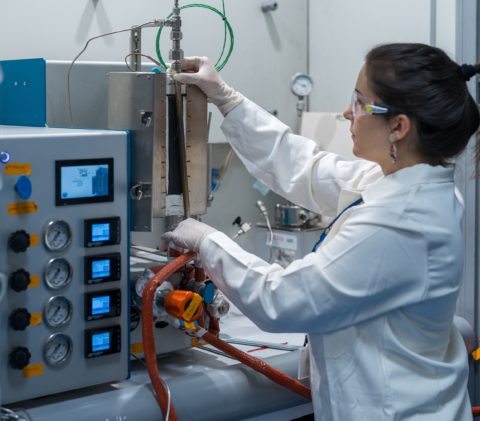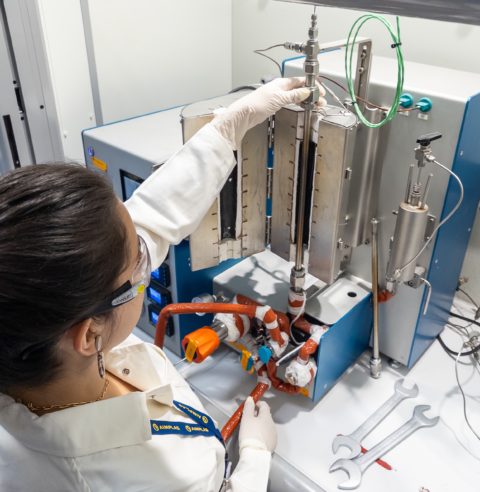AIMPLAS participates in a project to use waste from the wood industry to obtain sustainable chemical products and fuels
The SusValEn Project transforms lignocellulosic waste into biofuels to produce renewable hydrogen, biomethane and biomethanol, thereby reducing energy consumption and greenhouse gas emissions.
This research project is financed by the Ministry of Science and Innovation with European Next Generation funds as part of the Recovery, Transformation and Resilience Plan.
The wood manufacturing and processing industry is energy intensive and highly dependent on fossil fuels. At the same time, it generates a huge amount of waste from forestry and wood processing, including wood chips, wood shavings, sawdust, bark, sludge and wastewater. The SusValEn Project proposes the use of waste from the wood industry to reduce energy consumption by obtaining valuable chemical products and fuels such as biomethanol, hydrogen, biogas and biochar.
The Plastics Technology Centre (AIMPLAS) is part of the consortium of this project, made up of the Spanish National Research Council (CSIC)-INCAR, the INTASA Group, CETEMAS-Forest and Wood Technology Research Centre Foundation, the Universidade da Coruña, the Regional Institute for Agri-Food and Forestry Research (IRIAF-CLAMBER) and Orgánica de Sustratos S.L.
The SusValEn consortium is cooperating to reduce energy consumption and greenhouse gas (GHG) emissions in the wood processing industry through recovery of its lignocellulosic waste. This involves the exploration of multidisciplinary technologies and methodologies such as anaerobic digestion of wastewater and pre-treated solid sludge to produce biomethane, catalytic gasification-enhanced transformation of biomass waste to produce high-purity hydrogen, biochar production by pyrolysis and efficient regeneration of CO2 captured in the transformation processes to obtain a pure flow that can be hydrogenated to obtain biomethanol.
In the words of Pilar Cumplido, a Decarbonization researcher at AIMPLAS, “Through this project, we hope to transform waste into biofuels, produce renewable hydrogen, biomethane and biomethanol, and thereby reduce energy consumption and greenhouse gas emissions”.
Specifically, the application of SusValEn will boost decarbonization in MDF wood fibreboard manufacturing by replacing more than 20% of the demand for natural gas with biogas. On-site hydrogen production has the potential to reduce the cost of hydrogen supply by 30%, which would reduce the fuel’s minimum selling price. Another anticipated result is a reduction of CO2 emissions by 24%-40% compared to natural gas.

The SusValEn Project is financed by the Ministry of Science and Innovation, through the State Research Agency, and European Next Generation funds within the Recovery, Transformation and Resilience Plan.
About AIMPLAS
At AIMPLAS, we help companies apply circular economy criteria to their business models and turn the legislative changes that affect the plastics industry into opportunities to improve company efficiency, reduce environmental impact and increase economic profitability. To this end, we do research in areas such as recycling, biodegradable materials and products, and the use of biomass and CO2 with the aim of developing innovative solutions that help solve current environmental challenges.
Project PLEC2022-009406 funded by MICIU/AEI /10.13039/501100011033 and the European Union NextGenerationEU/ PRTR

